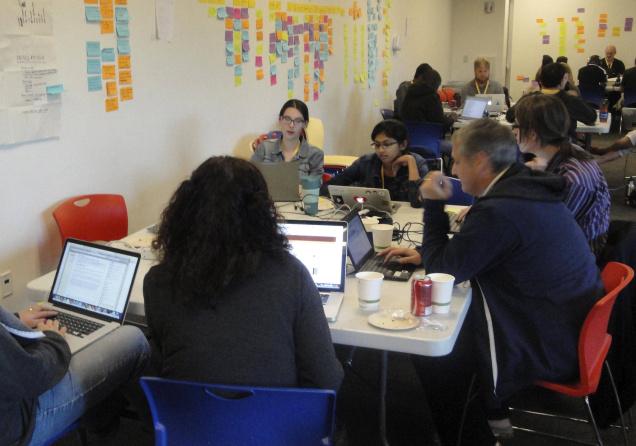Bangalore, October 29: If someone told you that you could write a book in five days, with no pre-production of any sort, would you believe them?
Adam Hyde, who facilitates book sprints, will let you know that it has been done over fifty times, sometimes with more than one book being produced during the event.
Mr. Hyde, who founded FLOSS Manuals in 2007 to promote the production of documentation about free and open source software conceptualised the idea of book sprints in 2008.
Based loosely on the idea of code sprints, book sprints bring together around three teams that finish writing a book in three days. Each team has about five to six members and may sometimes also include free agents who pair up with teams of their choice. Teams usually come to a sprint with a central theme for their book and spend two days warming up by deciding what they think the book should and should not have, planning the structure of the book, organising the content into chapters and also understanding their role in the documentation process.
A look at flossmanuals.net will show the plethora of themes adopted by books written at book sprints. Right from books dedicated to certain open source communities to books on book production, the command line, educational projects, oil contract transparency, font designing and Internet security, book sprints cover them all.
About the right tools
Even with a team that works collaboratively, writing a book with five voices can be tedious without the right tools. Book sprints use Booki, an editing tool on flossmanuals.net that has been designed for writing as a team. Using Booki, each member can work on a different chapter of the book, can edit chapters that they have not authored, can see the version history of the book and can discuss changes and talk to each other using Booki’s in-built chat interface. Booki also allows writers to export their manuals to PDF and ePUB, as soon as they have been written.
At a recent book sprint held from October 14 to18 at the Google office in San Francisco, teams from openMRS, Mallard, and BRL-CAD finished writing a book on subjects related to the community they represented. All three books were written for new contributors, either developers as in the case of openMRS and BRL-CAD, or documentation writers in the case of Mallard.
The writing process can also reveal a lot about existing documentation on a book’s theme, and a sprint can be used to document additional information. Ekaterina Gerasimova, one of the authors of the book on Mallard, a markup language, notes that “It has been very useful to see how our tools are presented by the Internet at large to potential users. For the most part, the available information is accurate, although some details needed to be clarified, which we will do in the book.”
The beauty of book sprints, aside from the production of small useful books, lies in the bonds that it creates between documentation writers from different communities, opening new avenues for collaboration in the open source world.

